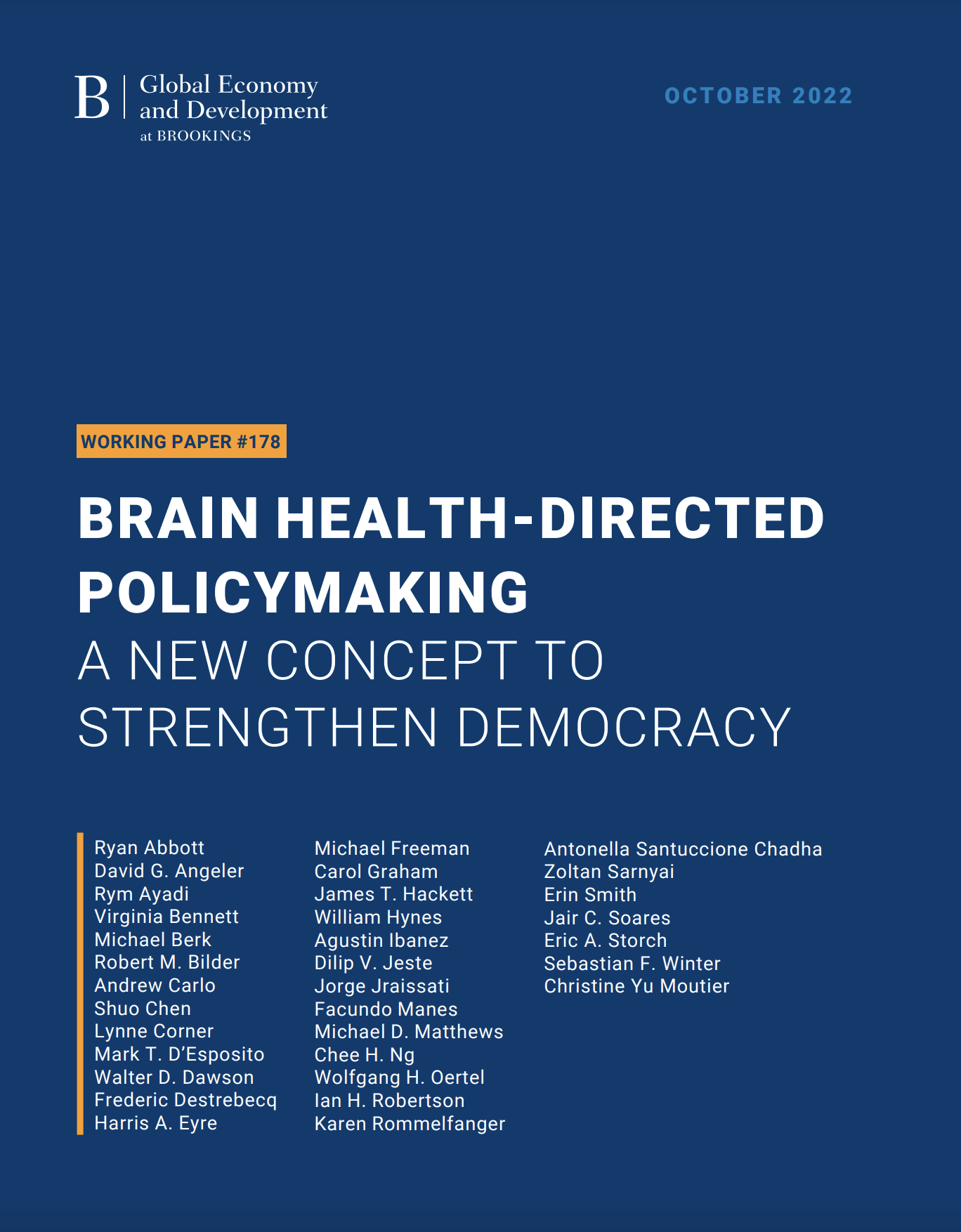Democracies are increasingly under siege. Beyond direct external (e.g., warfare) and internal (e.g., populism, extremism) threats to democratic nations, multiple democracy-weakening factors are converging in our modern world. Brain health challenges, including mental, neurologic, and substance use disorders, social determinants of health, long COVID, undesired effects of technology, mis- and disinformation, and educational, health, and gender disparities, are associated with substantial economic and sociopolitical impediments. Herein, we argue that thriving democracies can distinguish themselves through provision of environments that enable each citizen to achieve their full brain health potential conducive to both personal and societal well-being. Gearing policymaking towards equitable and quality brain health may prove essential to combat brain challenges, promote societal cohesion, and boost economic productivity. We outline emerging policy innovations directed at building “pro-democratic brain health” across individual, communal, national, and international levels. While extensive research is warranted to further validate these approaches, brain health-directed policymaking harbors potential as a novel concept for democracy strengthening.
The paper has been published by Brookings Institution and is available at https://www.brookings.edu/wp-content/uploads/2022/11/Brain-health-directed-policymaking_Final.pdf Paper authors: Ryan Abbott, David G. Angeler, Rym Ayadi, Virginia Bennett, Michael Berk, Robert M. Bilder, Andrew Carlo, Shuo Chen, Lynne Corner, Mark T. D’Esposito, Walter D. Dawson, Frederic Destrebecq, Harris A. Eyre, Michael Freeman, Carol Graham, James T. Hackett, William Hynes, Agustin Ibanez, Dilip V. Jeste, Jorge Jraissati, Facundo Manes, Michael D. Matthews, Chee H. Ng, Wolfgang H. Oertel, Ian H. Robertson, Karen Rommelfanger, Antonella Santuccione Chadha, Zoltan Sarnyai, Erin Smith, Jair C. Soares, Eric A. Storch, Sebastian F. Winter, Christine Yu Moutier- Home
- Team
- Research
-
-
Socio Economic Policy
Policy, Foresight and Institution TRIS Socio Economic Model Energy and Environment Territorial Resilience Research Initiative Health Policy and Economics Neuroscience Policy Research Covid-19 Policy Response Digitalisation and Artificial Intelligence Entrepreneurship & MSMEs Cultural Creative Industry Women Empowerment and Leadership
-
Money, Banking & Finance
-
Regional Integration & Partnerships
-
-
- Publications
-
-
Research
-
Communication
-
Latest Publication
Lead-Author/Editor: [lead_author]
Co-Authors/Contributors:
-
-
-
- Activities
- Events
- Latest
- Home
- Team
- Research
-
-
Socio Economic Policy
Policy, Foresight and Institution TRIS Socio Economic Model Energy and Environment Territorial Resilience Research Initiative Health Policy and Economics Neuroscience Policy Research Covid-19 Policy Response Digitalisation and Artificial Intelligence Entrepreneurship & MSMEs Cultural Creative Industry Women Empowerment and Leadership
-
Money, Banking & Finance
-
Regional Integration & Partnerships
-
-
- Publications
-
-
Research
-
Communication
-
Latest Publication
Lead-Author/Editor: [lead_author]
Co-Authors/Contributors:
-
-
-
- Activities
- Events
- Latest


